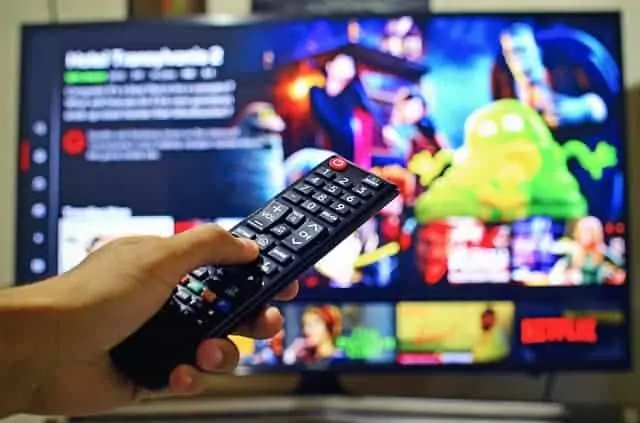Streaming and VPNs have become pretty much synonymous in today’s world. There’s huge talk of the “best” VPN for streaming everywhere, but are VPN’s even necessary to access streaming services? Do you need a VPN to stream content? That’s what’s we’ll seek to answer for newcomers to this whole topic of streaming content and VPNs.
A VPN is not required to stream content as long as you’re in the correct country and have an adequate internet connection of 2-3 Mbps or more. However, a VPN can be useful when looking to access geo-restricted services and content catalogues from outside the country the service is based in, or when streaming on public Wi-Fi.
In other words, no, a VPN is not always necessary and essential to stream movies/YouTube etc, but can sometimes be necessary if you’re located in a different country from where you’d normally access a service/platforms.
When You Don’t Need A VPN For Streaming
There is no requirement to use a VPN to access streaming services from within the country the account is held in. In these cases, you can use any standard high speed internet connection to stream content without needing to use a VPN.
Some simpler scenarios when you can just use a standard internet connection to access services to stream content are:
1. In the same country as where you set up an account with a streaming service (eg. in the USA if you set up a Netflix USA account)
AND
2. Just on your private home network.
In these cases, there’s no need to use a VPN if you don’t want to. Just log into the streaming service you want, and your IP address will tell the service that you’re in the correct country, and you’ll be granted access to the streaming catalogue available in that country. Many streaming platforms are aggressively blocking VPN usage, which is another reason to not use a VPN when you don’t strictly need to.
However, your connection can be more easily logged/tracked, and possibly even throttled by your ISP when streaming unprotected, so some people choose to enable a VPN connection anyway for more privacy and security.
Just make sure you pick the correct server location, and as long as you pick a good VPN with strong streaming access, you should be good to go.
When You Do Need A VPN For Streaming
Now let’s cover the more tricky cases when you might need to use a VPN to access streaming services.
This includes:
- When you’re abroad and not in the same country the streaming account was set up in.
- When you want to access a different streaming library for a service (different catalogues are available in different countries for certain services).
- When you’re on public Wi-Fi or another unknown/unsafe network.
- When you’re at home but just want more privacy anyway, and to not have your ISP or anyone else monitoring and tracking your streaming, and perhaps even restricting it.
- Accessing P2P streaming services.
In these cases, a VPN can come in useful to change your IP address and apparent location and also strongly encrypt and anonymize your internet traffic so it can’t be tracked or logged.
But it’s accessing geo-restricted content that’s the main use case for a VPN for streaming – to allow access when you’re not in the country of the account, or to access different regional catalogues from other versions of the service.
Does A VPN Affect Streaming?
A logical follow up question is whether using a VPN will affect your streaming in any way. Will it slow down or prevent the streaming, or lead to buffering?
As long as your base internet speeds and signals are good, using a VPN should not impact streaming quality. Using one might shave a small amount of speed off the connection, but as long as your underlying speeds are good enough to stream content on the platform anyway, it should not affect your streaming.
In other words, don’t worry too much about the VPN ruining the streaming. As long as your base connection is solid (2-5 Mbps is often recommended as a minimum for basic SD streaming) and your signal is strong and reliable if on Wi-Fi, using a VPN won’t make much of a difference.
Best VPNs For Streaming Access
If you do decide to use a VPN for streaming, you do need to be picky, because even a lot of the Premium ones don’t always work for accessing all streaming platforms (and free VPNs definitely won’t work).
There’s a cat and mouse battle between VPN providers and streaming services, whereby they keep discovering and blocking VPN IP addresses, leading the providers to issue new ones, and so on.
Therefore you need to pick a VPN service that specializes in continually optimizing access to streaming services, which usually means you’re paying a bit more for subscriptions.
Here are some recommended providers:
- ExpressVPN – Widely regarded as the best streaming VPN overall – superb access to all services in all countries, and close to 100 server locations. But also the most expensive among the main VPNs.
- ProtonVPN – Unblocks Netflix, Disney Plus and Amazon Video in all major countries (see here). Excellent server selection and fast, reliable servers. Strong, reputable brand. Less expensive than ExpressVPN.
- Private Internet Access (PIA) – Reasonable streaming access when I tested it, but not as strong as ExpressVPN or ProtonVPN. Much cheaper option though
With cheaper, more basic VPN services, streaming access is more patchy, although you can sometimes be pleasantly surprised by the cheaper providers giving good streaming access. AtlasVPN, PrivateVPN and ZoogVPN are three cheaper options to look at that can offer access to at least a decent amount of streaming platforms.

